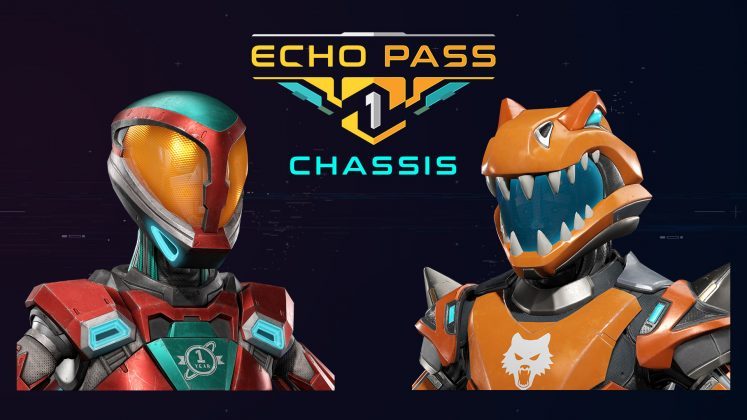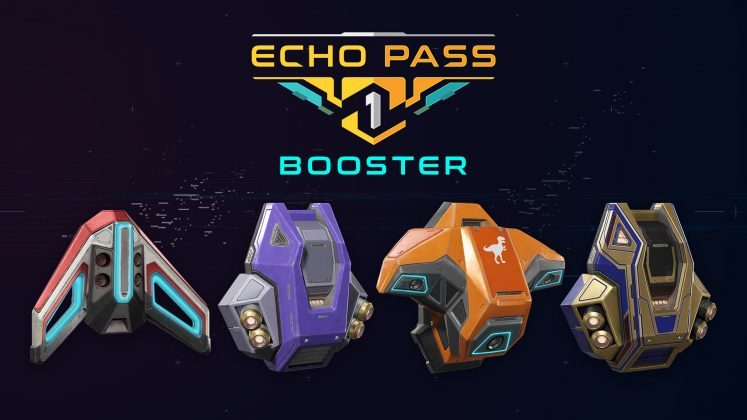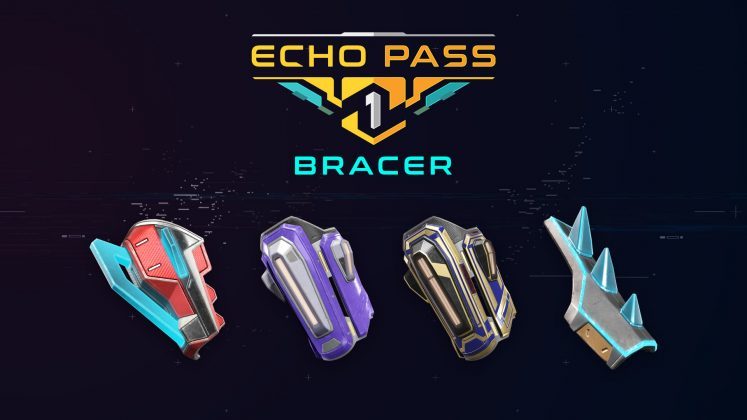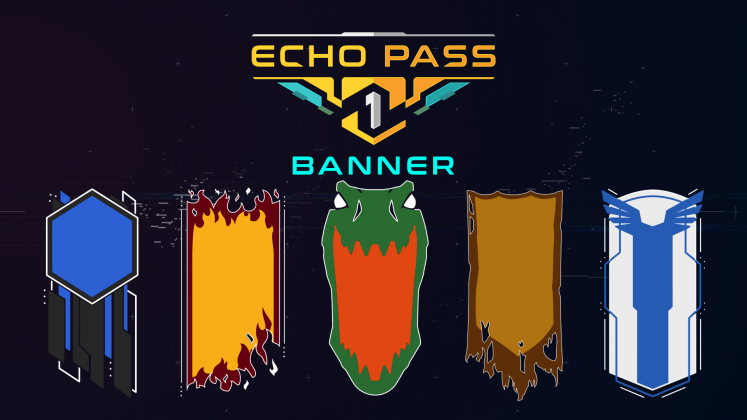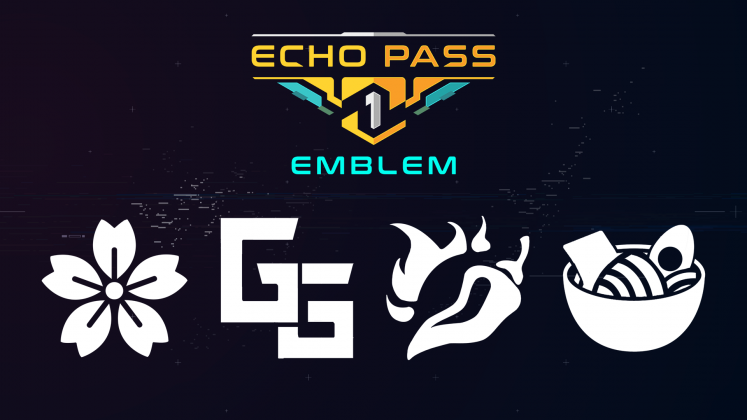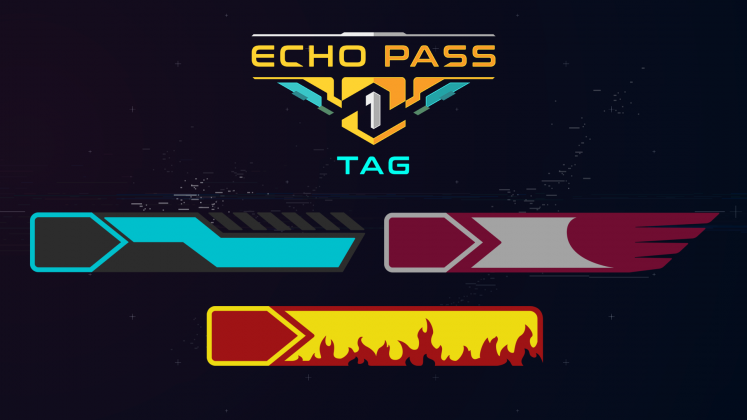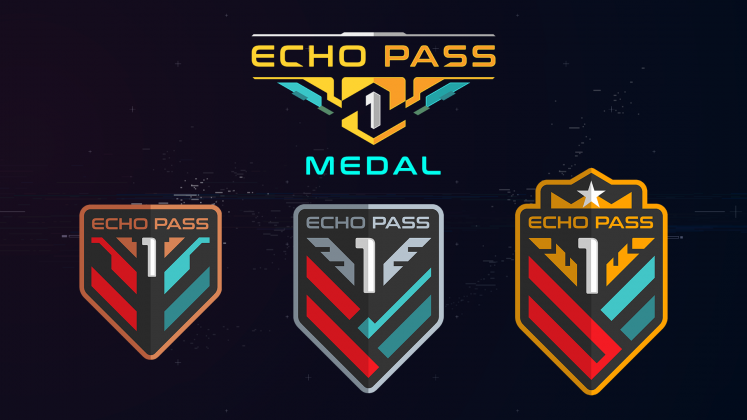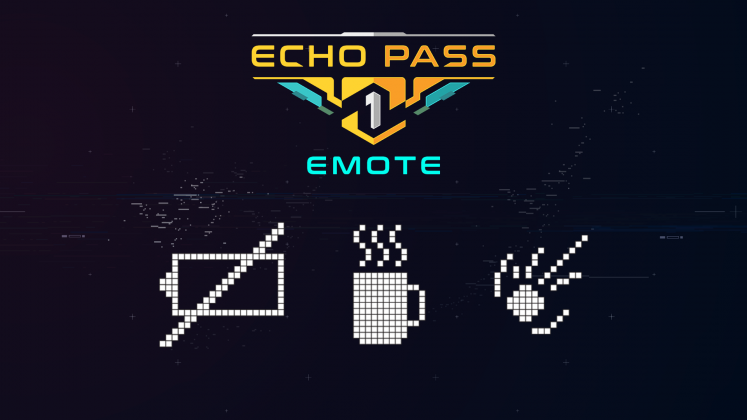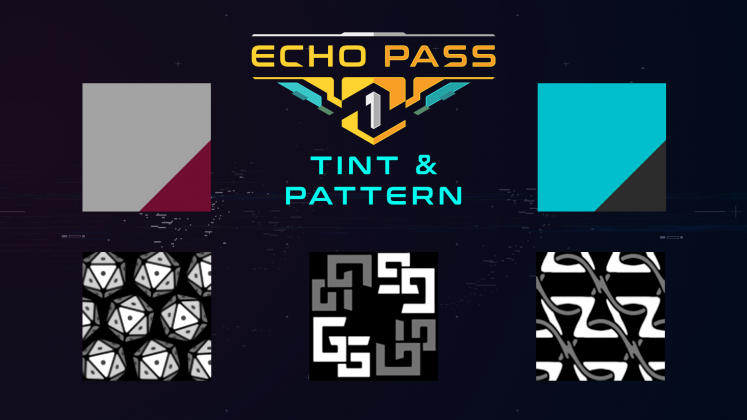Echo VR, the social VR sport game available on Oculus PC and Quest, has launched a ‘battle pass’ system called Echo Pass. Similar in structure to other battle passes for free-to-play games, the pass allows players to unlock some free cosmetic customizations for the game, while premium cosmetics can be bought with real money.
Update (March 9th, 2021): Following closed beta testing earlier this year, the Season 1 Echo Pass is available starting today on Quest & Rift, and will run through May 23rd. Developer Ready at Dawn has released a new trailer showing off the rewards that players can earn.
The original article, which outlines the structure of the Echo Pass, continues below.
Original Article (January 25th, 2021): The ‘battle pass’ approach to game monetization has seen increasing popularity in the last few years alongside the rise of free-to-play games like Fortnite, Apex Legends, Call of Duty: Warzone, and others.
Echo VR (2017), the multiplayer spinoff of Lone Echo (2017), is adopting the same approach with the introduction of the Season 1 Echo Pass, which Echo VR developer Ready at Dawn announced today. The Echo Pass is available first in a closed beta (which players can sign up for here), with a formal launch date to follow the testing period.
Like other battle pass approaches, the Echo Pass is focused on in-game cosmetic customizations that aren’t intended to impact gameplay balance. Players can unlock the rewards included in the Echo Pass by earning experience points from playing the game, or by paying real money to buy the experience points.
While 10 of the 50 rewards can be unlocked for free, the other 40 can only be unlocked if players buy the premium version of the Echo Pass for $10. Even after purchasing the premium version, players will need to earn XP by playing the game (or paying real money) to unlock the premium rewards.
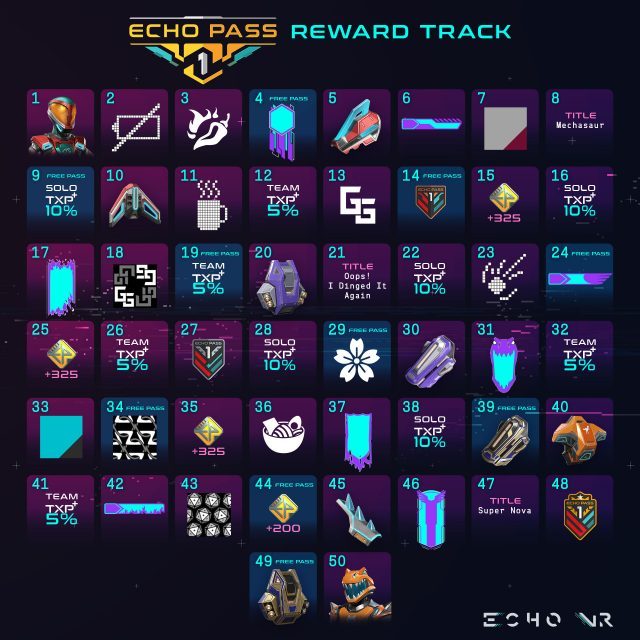
Ready at Dawn says it has overhauled the game’s existing cosmetic customization system to support a wider range of customization options introduced with Echo Pass.
Rewards include Chassis, which change the overall look of the player’s armor; Boosters & Bracers, which change the look of their arms and propulsion boosters; Banners, Tags, Emblems, Titles, & Medals, which allow players to change how their names and identity are presented in the game; and Patterns & Tints, which are colors and texture patterns than can apply to banners, tags, and some armor.
Similar to battle passes in other games, the Season 1 Echo Pass will only be available for a limited time; without earning enough experience, players may not be able to unlock all the rewards, even if they purchased the premium version. Players who don’t have enough time to earn the experience required to unlock all the rewards can pay real money to unlock them instead, for $2 per reward.
For perspective, that means that if a player purchased the premium Echo Pass and wanted to unlock all the rewards but had no time to play the game to earn experience, the player would need to pay $110 total. It isn’t clear how long the season will last, nor how much time spent in the game will be required to unlock all the rewards, so we can’t say for now how likely it would be that players need to shell out real money, even after buying the premium Echo Pass, to unlock all the rewards.
Battle pass systems like Echo Pass are designed to both monetize the game and give players an extra reason to spend time in the game. Depending upon the time needed to grind out the rewards, cosmetic-only battle passes are a less controversial way of supporting a game’s ongoing development compared to other approaches like loot boxes with rare rewards and micro-transactions for items which impact gameplay or game balance.
– – — – –
Echo VR (formerly called Echo Arena) was originally planned to be sold for $20 but was made indefinitely free thanks to a partnership with Oculus. The Echo Pass is Ready at Dawn’s first attempt at monetizing Echo VR, which has seen ongoing support and development, despite being free for years, including seasonal events and a port to Quest in mid-2020.
Later in 2020, Facebook announced that it bought Ready at Dawn, it’s third VR game studio acquisition. The studio is also actively developing Lone Echo II—the sequel to Echo VR’s single-player sibling, Lone Echo—though the project has seen significant delays.

